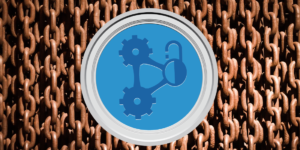Privacy issues on collective applications, such as Facebook, are just in their early stages. Artificial intelligence (AI), and data science, applied on human data bring greater challenges.
Reading and interpreting facial recognition with AI is coming to the market (source: https://www.theguardian.com/technology/2017/sep/12/artificial-intelligence-face-recognition-michal-kosinski) but this could also apply to voice recordings, DNA analysis (source: https://www.forbes.com/sites/realspin/2017/02/15/the-privacy-delusions-of-genetic-testing/#3827eeff1bba) for health portals, and so on.
When applications are interfacing in the background to correlate datasets and developing robust databases of inner identities (“key findings”), these applications can extract more data from users than initially thought possible. This is useful when developing targeted commercial offerings, but not so much as an individual if you have decided to change and don’t want to be labelled as resisting change.
In order to fix such privacy issues, new cryptography solutions are emerging, such as Secured Multipart Computation (SMC).
SMC is able to perform “information reduction” without compromising the data. Let’s take for example a video you shared to a data intelligence service. As a user you can decide: the only information the service will extract will be the outfits. This would enable you to get useful recommendations later on, when shopping online. You can restrict the analysis of such services, preventing any facial analysis on any other document.
These distributed recommendation services can only emerge if the computation is decentralized. This is why we need a blockchain to govern the computation. It can also only happen by keeping the data private. It is only open for a restricted set of algorithms previously defined by the user.
Rockchain (www.rockchain.org) is providing a distributed architecture respecting these fundamental conditions:
- The user data remains private, and local
- The user chooses whose computation can use his data, and what results are allowed to go out to the service
- The script that executes on the user data is proven to be the correct one (it’s more a security issue: no hacker can alter the algorithm and fake results for the service)
As the potential use cases for such an infrastructure are numerous, Rockchain is offering an infrastructure for DAPPs (distributed applications) to implement their own user cases on their infrastructure.
In terms of B2B applications, Rockchain covers the following use cases:
- Enabling data governance and exchanges between corporate players that don’t always trust each other. The Blockchain is a tremendous orchestration tool for dealing with a group of companies where no one has the full control of the consortium, and members can leave or join the group whenever they please. Rockchain enables data collaboration on top of those organization’s own system, while keeping the data local.
- Regulation platforms. Regulators need to control the data production process while they should not intervene much into strategic data. It is especially true in the financial regulation field, where risk measures should be taken without compromising the privacy of investment strategies. Rockchain can compute risk measures on portfolio, without ever compromising the portfolio data privacy.
By linking the Ethereum distributed governance tools with new data privacy techniques taken from SMC, Rockchain brings a new set of opportunities in the distributed applications market.
Rockchain is launching its ICO on the 1st November, the token page is available here: www.rockchain.org/token.html








